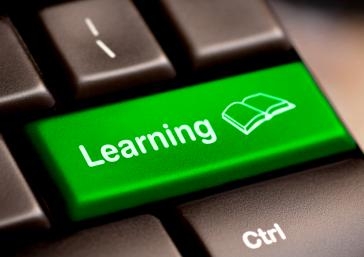Tailored online learning is the future
Online learning can and should be a much richer, interactive and adaptive experience than it is now, argues Dror Ben Naim.
Online learning can and should be a much richer, interactive and adaptive experience than it is now, argues Dror Ben Naim.

OPINION: Just as Google and Facebook let advertisers tailor their messages based on our online behaviour, the same type of technology is now promising to radically restructure education by making learning personal.
In the future, every student will have their own digitised, lifelong learning profile that will record their skills, knowledge and credentials. It will travel with them through school, university, and onto their professional development during their career.
Such profiles will be continuously constructed from early childhood as students go through online learning experiences at school or at home – while learning, doing assignments or taking exams.
These profiles will make it possible for education providers to deliver personalised and adaptive instruction to each learner, throughout their lifetime – a bit like having your own digital private tutor. On the flip side, they will also help employers align with job-seekers as digital profiles of skills, certifications and qualifications are easy to aggregate, search, and match.
Just as advertisers can offer customised ads based on previous internet usage patterns every time we sign on, emerging educational technologies, such as adaptive learning platforms, can now track how students are faring and so offer appropriate problems, challenges and exercises based on an individual’s prior learning.
Sophisticated learning styles
At the heart of this innovation is the ability to construct sophisticated learning profiles which include an increasingly accurate representation of students’ knowledge, skills and learning styles.
In the past two years, online education has attracted considerable attention for its potential to disrupt old, one size fits all, classroom-based models of mass education.
However – and I apologise for pointing at the emperor’s new clothes, but let’s face it – most current online learning experiences, even those that are massively open (MOOCS), are not doing much more than reusing old ways in a new digital medium – a phenomenon that the software pundits call “shovelware”. In essence, “shovelware” is the quick and mindless conversion of conventional experiences into new digital formats with little thought given to the new possibilities or limitations of these new platforms and mediums.
Too often, the lecture became a one-way video lecture, reading materials became PDFs, and assessments are frustratingly limited to multiple choice questions (MCQs). Sometimes I worry that we are raising a generation of kids who must think that there are four possible solutions to every problem in life, and that one of them must be right (and if you don’t know which one, your best chances are to guess ‘C’).
Online learning can, and should, be much richer, interactive and adaptive.
We have been building adaptive learning experiences in disciplines such as medicine, science, engineering and business at Australian and US universities for the past seven years. What we have learned is that constant, adaptive feedback improves student outcomes.
Australia is moving into adaptive learning with less fanfare than has accompanied the explosion of the ed-tech sector in the US and the consequent rush of venture capitalists to get into the game.
Important developments
Nevertheless, several important developments are unfolding. One such project is the Smart Science Initiative – a collaboration between Australian universities, high school teachers and Smart Sparrow to develop rich, interactive and adaptive learning experiences, to bring personalised online learning into our high school science classes in the near future.
Later this week, at the University of Melbourne, a consortium of Australian universities will launch a world-first personalised learning initiative in medical education.
The Biomedical Education Skills and Training Network (aptly abbreviated as BEST Network), is a network of expert educators from top medical schools who are sharing next-generation (read – adaptive and personalised) content and technology. Amongst the founding partners are UNSW, the University of Melbourne, the University of Queensland, James Cook University and peak industry bodies for nursing, pathology and orthopaedic surgery.
By leveraging the skills of a community of experts who are collaborating to create resources that are powered by adaptive learning technology, digital learning profiles and learning analytics, BEST represents a paradigm shift that is poised to transform medical education.
Students studying medicine or nursing at member institutions learn in virtual, adaptive and interactive environments. They can perform experiments in virtual labs, diagnose virtual patients, investigate and solve problems within adaptive tutorials and access a vast bank of annotated medical images. All the while, their learning profiles are being constructed, enabling an ever improving personal learning experience.
BEST community members share a vision – that students and teachers, wherever they are, will have access to the best healthcare education. The beauty is that educators and not technologists are in control. With easy-to-use tools they can create, deploy and analyse these learning resources. Sharing is both easy and encouraged, benefiting the biomedical educational community, in Australia and world-wide.
The first wave of mindless educational “shovelware” – is giving way to a smarter future. That is, a future in which networks of educators can collaborate to create and share rich, interactive and adaptive courseware, and in which students’ skills and knowledge will be available in their lifelong learning profiles.
Dror Ben-Naim is the founder and CEO of Smart Sparrow, an Australian start-up pioneering adaptive learning technology. Dr Ben-Naim will speak at the launch of the BEST Network at the University of Melbourne this week. BEST is headquartered at UNSW Medicine.
This opinion piece was first published in The Australian Financial Review.